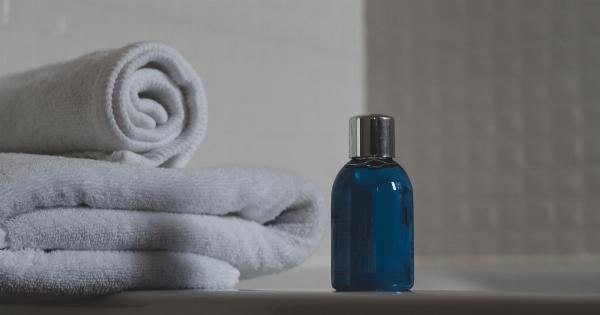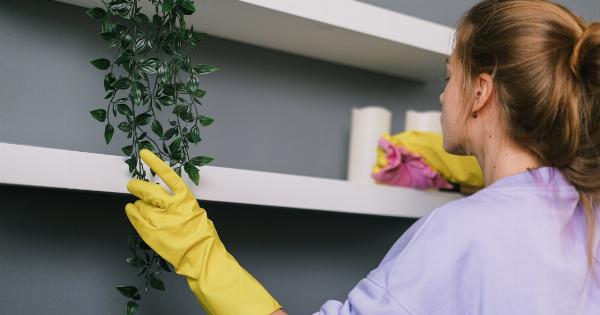Seasonal allergies, also known as hay fever or allergic rhinitis, affect millions of people around the world.
When the seasons change and plants release their pollen into the air, individuals with allergies may experience a range of symptoms such as sneezing, congestion, runny nose, and itchy eyes. While medications can help relieve these symptoms, avoiding allergens altogether is the best approach. By taking a few simple steps, you can reduce your exposure to allergens and minimize the impact of seasonal allergies on your daily life.
1. Stay Updated on Pollen Counts
Pollen is the primary trigger for seasonal allergies, so it’s important to know when pollen levels are high. Stay updated on local pollen counts by checking weather websites, mobile apps, or even local news stations.
On days when the pollen count is particularly high, try to limit your time outdoors or take precautions such as wearing a hat and sunglasses to protect your face from direct contact with pollen.
2. Keep Windows and Doors Closed
When pollen counts are high, it’s crucial to keep your windows and doors closed to prevent pollen from entering your home. Use air conditioning instead of opening windows to keep your living space cool and well-ventilated.
If you must open the windows for fresh air, do so in the early morning or late evening when pollen levels are typically lower.
3. Clean Your Home Regularly
Pollen can easily make its way indoors and settle on surfaces, so it’s important to clean your home regularly. Vacuum carpets and rugs frequently using a vacuum cleaner equipped with a HEPA filter to trap pollen particles effectively.
Dust surfaces with a damp cloth to prevent pollen from becoming airborne. Consider investing in an air purifier to keep the indoor air clean and pollen-free.
4. Wash Your Bedding Frequently
Pollen can cling to your bedding, exacerbating allergy symptoms while you sleep. To reduce exposure, wash your sheets, pillowcases, and blankets in hot water weekly.
This will help remove any pollen particles that may have collected on your bedding during the day. Additionally, consider using hypoallergenic pillow and mattress covers to create a barrier against allergens.
5. Practice Good Personal Hygiene
After spending time outdoors, it’s essential to practice good personal hygiene to minimize the spread of pollen. Take a shower and wash your hair before going to bed to remove any pollen that may have collected on your body or in your hair.
Change your clothes, especially if you’ve been in heavily-pollinated areas, to avoid bringing pollen into your home. Remember to dry your clothes indoors as pollen can stick to damp laundry if you hang it outside.
6. Avoid Peak Pollen Times
Pollen levels tend to be highest during specific times of the day. Avoid going outside during mid-morning or early evening when pollen counts are at their peak.
If you need to be outdoors for any reason, consider wearing a pollen mask or using a scarf to cover your nose and mouth, creating a barrier between you and pollen particles.
7. Stay Informed about Allergenic Plants
Some plants produce more allergenic pollen than others. By familiarizing yourself with the plants that are most likely to trigger your allergies, you can be better prepared to avoid them.
Common culprits include ragweed, grasses, oak trees, and birch trees. Stay informed about the typical flowering periods of allergenic plants in your area, and take extra precautions during those times.
8. Keep Indoor Humidity Levels Low
High humidity can create a favorable environment for the growth of mold and dust mites, both of which are common allergens. Use a dehumidifier to keep indoor humidity levels low, ideally between 30% and 50%.
Keep a close eye on areas prone to moisture, such as bathrooms and basements, and address any leaks or water damage promptly to prevent the growth of mold.
9. Minimize the Use of Irritants
Strong fragrances, such as those found in perfumes, cleaning products, and scented candles, can irritate the airways and worsen allergy symptoms. Minimize the use of these irritants in your home and opt for unscented or fragrance-free alternatives.
Additionally, avoid smoking or exposure to secondhand smoke, as it can intensify allergy symptoms and irritate the respiratory system.
10. Consult an Allergist
If your seasonal allergies significantly impact your quality of life, it may be beneficial to consult an allergist. They can help identify specific allergens that trigger your symptoms through skin tests or blood tests.
Based on the results, your allergist can recommend personalized strategies to manage your allergies effectively, including immunotherapy options like allergy shots or sublingual drops.






























